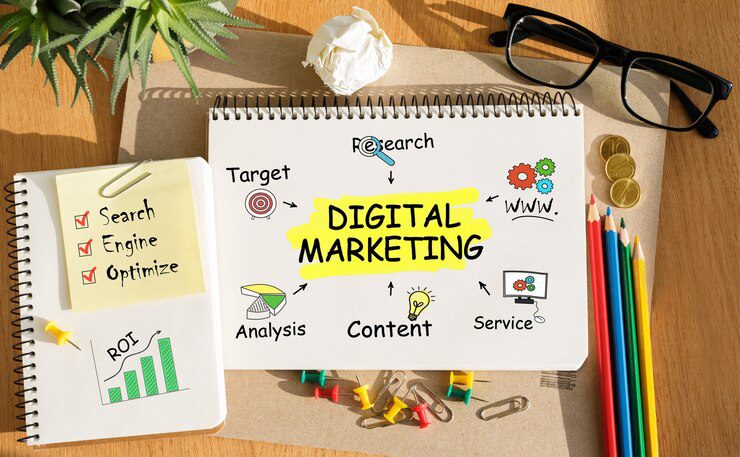In today’s fast-paced digital world, small businesses must adapt to stay ahead of the competition. A robust digital marketing strategy is no longer optional—it’s crucial for survival and growth. Whether you’re a local café, an online retailer, or a service provider, an effective digital presence can make or break your business. But where do you start? In this ultimate guide, we’ll walk you through the key elements of a winning digital marketing strategy tailored specifically for small businesses.
Why Digital Marketing Matters for Small Businesses
Small businesses often face budget constraints, limited resources, and fierce competition. However, digital marketing levels the playing field by allowing even the smallest companies to compete with industry giants. In fact, a survey by Clutch found that 83% of small businesses believe their digital marketing efforts are working well, but only 54% have a dedicated strategy in place. This means there’s a lot of untapped potential.
Key Components of a Successful Digital Marketing Strategy
Define Your Goals
The initial step in crafting a digital marketing strategy is to clearly define your goals. Are you looking to increase brand awareness? Boost website traffic? Drive online sales? Each goal will influence the tactics and platforms you choose. Ensure your goals are SMART: specific, measurable, achievable, relevant, and time-bound.
Know Your Audience
Understanding your target audience is the cornerstone of any effective marketing strategy. Who are your customers? What are their pain points? Where do they hang out online? Creating detailed buyer personas helps you tailor your message and reach the right people at the right time.
Optimize Your Website
Your website frequently serves as the initial introduction customers have to your business. An outdated or slow site can drive potential customers away. Google reports that 53% of mobile users leave websites that take longer than three seconds to load. Make sure your website is mobile-friendly, loads quickly, and is optimized for search engines (SEO) to increase your visibility online.
Content is King
Content marketing is the backbone of a solid digital marketing strategy. Whether it’s blog posts, videos, or infographics, creating high-quality, valuable content helps build trust with your audience. HubSpot found that 53% of marketers say blog content creation is their top inbound marketing priority. Regularly updating your blog with SEO-optimized content can drive traffic to your site and help convert visitors into customers.
Leverage Social Media
Social media is where your audience spends a considerable chunk of their time. Platforms like Facebook, Instagram, Twitter, and LinkedIn offer excellent opportunities to engage with customers and promote your business. In fact, 90% of small businesses say social media helps them increase their visibility. Use these platforms to share content, interact with customers, and run targeted ad campaigns.
Email Marketing
Don’t underestimate the power of email marketing. According to Campaign Monitor, for every $1 spent on email marketing, businesses see a return of $44. Building an email list allows you to nurture leads and keep customers informed about promotions, new products, or company updates.
Use Paid Advertising
If you want to accelerate your digital marketing efforts, consider using paid advertising. Platforms like Google Ads and Facebook Ads allow you to target specific demographics, interests, and behaviors, ensuring your ad reaches the right audience. The beauty of paid ads is that they are scalable—you can start small and increase your budget as you see results.
Top Digital Marketing Trends for Small Businesses
To stay competitive, it’s important to keep up with the latest digital marketing trends. Here are a few worth considering:
Video Marketing: Video content is expected to account for 82% of all internet traffic by 2025. Incorporating video into your marketing strategy can boost engagement and conversions.
Voice Search Optimization: With the rise of smart speakers and virtual assistants, optimizing for voice search is becoming more important. Concentrate on long-tail keywords and natural, conversational phrases.
Influencer Marketing: Partnering with influencers—whether they have a large following or are micro-influencers—can help you reach new audiences and build credibility.
Conclusion
In conclusion, a well-planned digital marketing strategy is the key to growing your small business in today’s digital age. By understanding your audience, creating valuable content, and leveraging tools like social media and paid advertising, you can compete with larger companies without breaking the bank. Remember to track your results and adjust your strategy as needed to keep up with industry trends.
Start small, stay consistent, and watch your business grow. A robust digital marketing strategy isn’t built overnight, but with time and effort, it will yield significant results. So what are you waiting for?







